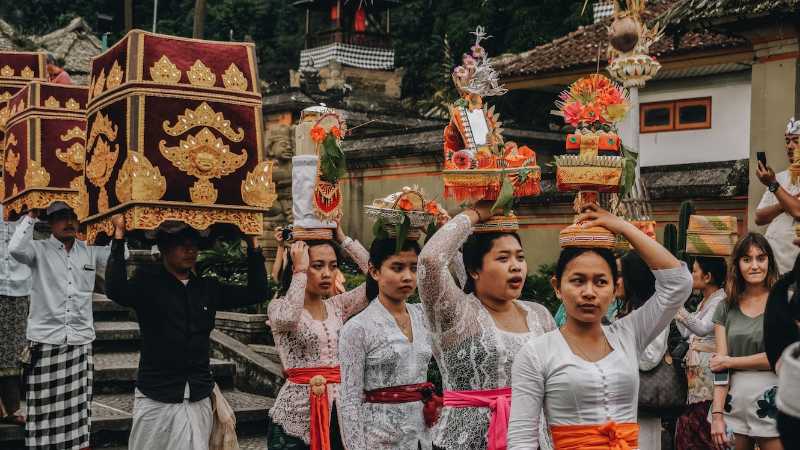Published on: 02/03/2023
Quantum Temple aims to ‘archive’ Indonesian culture through NFTs

In a Wednesday interview, Quantum Temple CEO Linda Adami explained that its collaboration with the Indonesian Ministry of Tourism aims to preserve existing culture through NFTs.
Quantum Temple, a Web 3.0 platform with the goal of archiving cultural heritage, announced its collaboration with the Ministry of Tourism in February. Per the press release, the partnership would build on Indonesia’s budding digital and creative economy through decentralized blockchain technology.
In her March 1 interview with CryptoSlate, Adami reiterated that the company aims to participate in cultural preservation efforts by taking advantage of decentralized blockchain technology. The platform has worked with local communities and creators to build their heritage archives.
“Cultural heritage is incredibly underfunded. But what if we can create immutable archives of culture using NFTs, and use them toward developing a new model for incentivizing current and future generations to stay involved in cultural heritage,” she said.
According to the agreement, Indonesian creatives can display their work on a global platform through Quantum Temple’s NFTs. The Web 3.0 company also revealed its first project in the collaboration, the Paths to Alangö collection. The collection will feature Balinese traditional dances, rituals and artifacts as visual and audio archives.
Muhammad Neil El Himam, the Deputy Minister of Tourism and Creative Economy, represented the Ministry in Quantum Temple’s NFT partnership. While emphasizing the importance of cultural preservation, El Himam noted the collaboration’s potential to boost global awareness of Indonesia’s culture.
“We are working hard to achieve our goal of growth and cultural expansion. We are using modern blockchain solutions to preserve historic items and experiences and share our culture with the world,” he said.
“We hope to attract more people to participate in our digital and physical economy.”
Preserving local culture using blockchain tech
Adami cited a UN World Tourism report that found only five out of $100 from tourism goes into the average developing country’s economy. Bali is especially vulnerable to cultural exploitation and financial vulnerability due to the number of international corporations running the tourism infrastructure scene.
Quantum Temple aims to preserve and fund local cultural economies through blockchain technology. Adami hopes that future NFT projects from the collaboration will be able to connect the material relics and culture present in Indonesia to digital crypto archives for future generations to admire.
The Ministry of Tourism celebrated the partnership through a large cultural event at Pura Tirta Empul, Bali, on February 24. The event showcased many of Bali’s cultural strengths, featuring historical dance and music as well as popular traditional dishes from the region.
El Himam and Adami both spoke at the event, detailing the project’s aspirations and plans. Adami also praised the Indonesian government’s cooperation and contribution to the project’s development, saying that the partnership “signifies a new era in the development of the creative industry.”
“It demonstrates the government’s commitment to fostering innovation and creativity, and lays a strong foundation for the growth and development of the digital economy and the preservation of cultural heritage through digital technology such as blockchain,” Adami said.
Quantum Temple raised over $2 million in funding to preserve Balinese culture. Adami also thanked creators and stakeholders for their commitment to the project.
“Quantum Temple is a tangible project that is actually doing real social impact transparently on [the blockchain]. What we are building is end-to-end web infrastructure to empower the preservation of cultural heritage,” she said.
According to their business model, Quantum Temple will invest 40 percent of the funding gained from NFT sales to support cultural heritage sites like monuments or sacred institutions. The Web 3.0 company also takes 40 percent of the funding, while artists and curators will get 10 percent.



